#11 Can Digital Goal Setting Help you Share your Faith?
On being a disciple that talks about Jesus
Maybe I am biased, because he is from my hometown of Bradford, but I have a lot of respect for the down-to-earth founder of Christians Against Poverty John Kirkby.
During a recent Reach Podcast interview John shared with my friend Mark Greenwood (also from Bradford 🙌) his story about successfully handing over CAP, the debt advice charity, and then seeking God about what to do next. His passion for people and a desire to share Jesus led to the birth of a new initiative called The Isaiah 61 Movement. Their mission is to see every Christian confidently sharing Jesus.
Here’s the thing about discipleship: You can’t invite anyone on a journey towards Jesus without at some point sharing your own faith with them. Yet all the research now says this is happening less frequently than we care to admit.
9/10 Christians have the desire, but struggle to share their faith.
After examining the stats and having honest conversations with friends and family, John came to the realisation that there was a gap between Christians who wanted to share their faith and those that actually did it.
This might be for different reasons —whether concerns about being judged or fear of being asked awkward questions. But perhaps the biggest barrier is a lack of confidence in knowing where to start.
John admitted that he shared this struggle too, and then set about tackling it through innovation and prayer. After two years of development, the i61m App has now launched as a small part of the solution. The App has a deceptively simple premise: Set a faith sharing goal in the context of community.
Keep it focussed
The focus of the i61m App is setting goals that are specific, measurable and time-bound, based on one of these themes:
Share Life > Finding and deepening friendships.
Share Faith > Growing in confidence to share your faith story.
Share Jesus > An invitation for someone to discover more of Him for themselves.
The concept behind i61m is based on the popular Couch to 5K theory which acknowledges that people have different starting points when it comes to creating new habits. The secret is not to deny it or pretend you are further on in your journey than you actually are! Josh Clark, who created the original Couch to 5K model, used this insightful phrase when talking about adopting a gradual approach to lifestyle change:
“It is about being kind to yourself, letting yourself go more slowly than you think you should so that you can do more than you believed you could.”
Long term change happens when we create realistic expectations, make a challenge feel achievable, and see early victories. Want to start sharing your faith more? Pray about it. Set a goal. Write it. Date it. And go for it. That’s it.
You are not responsible for the outcome - you just have to be obedient.
Keep it simple
Elim Leader Mark Greenwood sums up the i61m approach like this:
“Sometimes when we mention the E-word… ‘Evangelism’… there is this massive expectation…. But we can all go for a walk with a friend. We can all tell something of our story. I love that we are celebrating the small steps…”
There are loads of ideas on the i61m website for the types of goals you can set when sharing your life or faith:
Connect through a club, the gym, a social group.
Invite a neighbour for a meal / drink.
Do lunch / engage with your colleagues more.
Offer to help someone in need (e.g. moving house, giving a lift, listening & encouraging).
Invite a friend for a walk.
Let your friends / colleagues know you're a Christian.
Bring Church up in conversation about your week.
Share how God has helped you through something.
In his runaway bestseller Atomic Habits, writer James Clear asserts that in order to transform our habits, we don’t just need to try something different, but we must become someone different.
If you’re looking to make a change, then I say stop worrying about results and start worrying about your identity. Become the type of person who can achieve the things you want to achieve. Build identity-based habits now. The results can come later.1
For example, if you want to lose weight, become the type of person who does five gym sessions a week. Seeing yourself as a gym person shapes your activities. An identity-based habit is based on the idea that “to change your behaviour for good, you need to start believing new things about yourself.”
Or another way to put it, this is about “who goals” not “do goals.”
I think this is the untapped potential behind the i61m App. It is a digital tool that can help us begin to reframe how we think about ourselves and our role as Christians. We have to believe we are God’s Ambassador’s — those who can and will share his good news. Our identity is ultimately what motivates us to share life, faith and Jesus.
Whether you try out the i61m App or not - Isn’t it time you saw yourself as an Ambassador for Christ?
So far I’ve set two goals on my App which are specific and dated. The fact that I have them written down is making me feel more accountable and is prompting me to take action. I have already engaged with sharing my faith in new ways and I am seeing lifestyle change as a result… search your App store for i61m and give it a go for yourself!
Visit the website and start setting goals today.
Atomic Habits (James Clear).




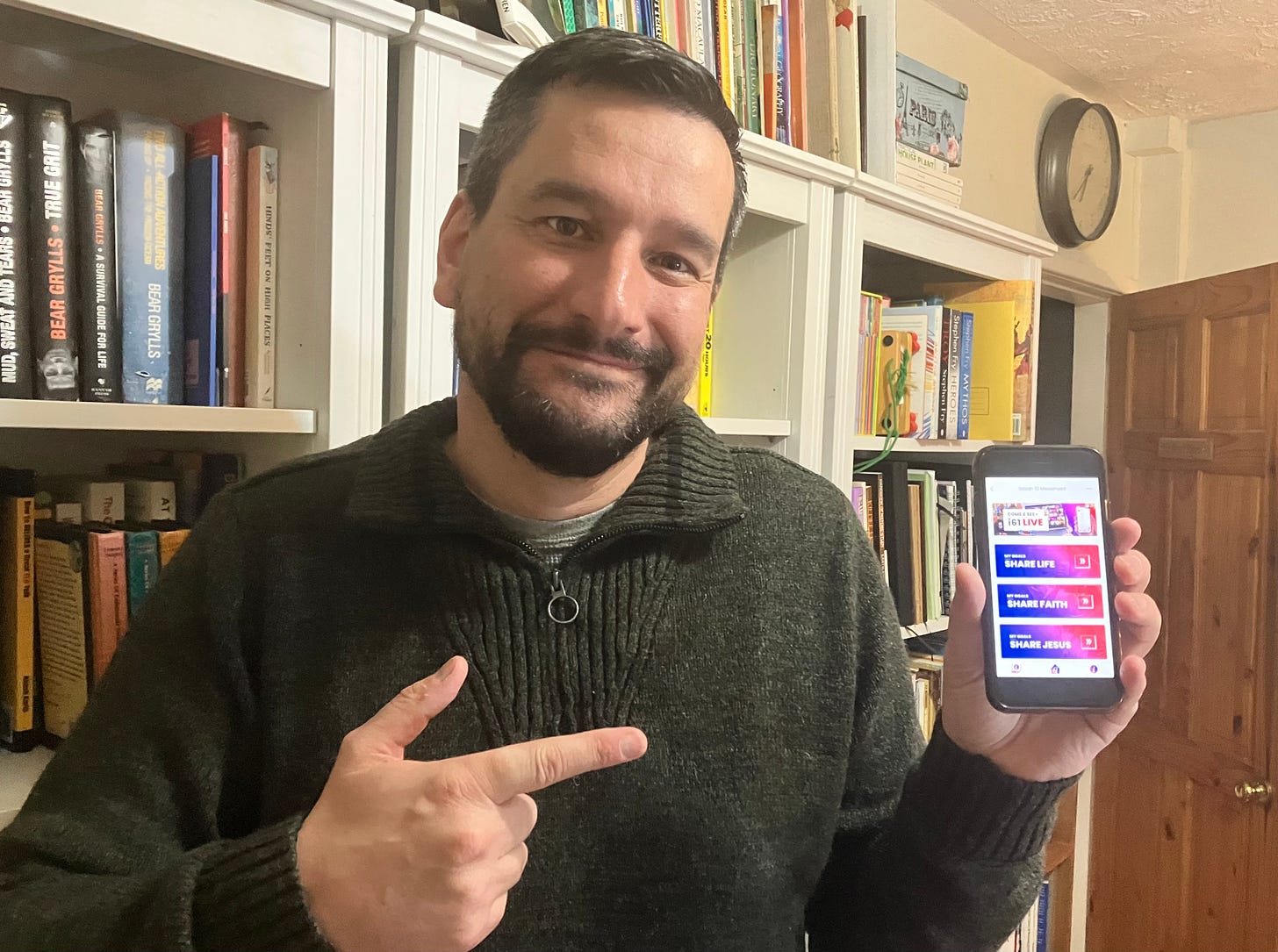
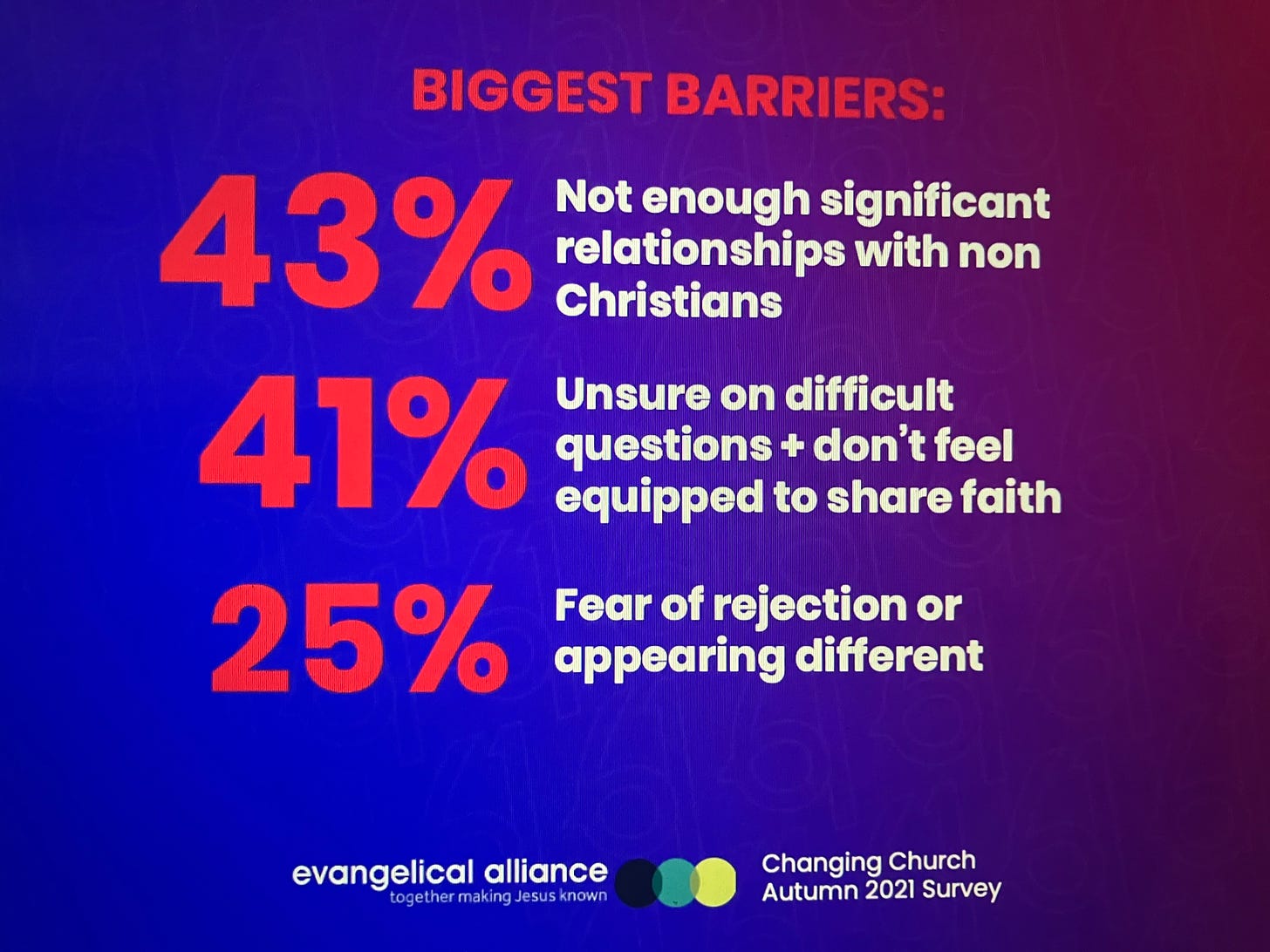
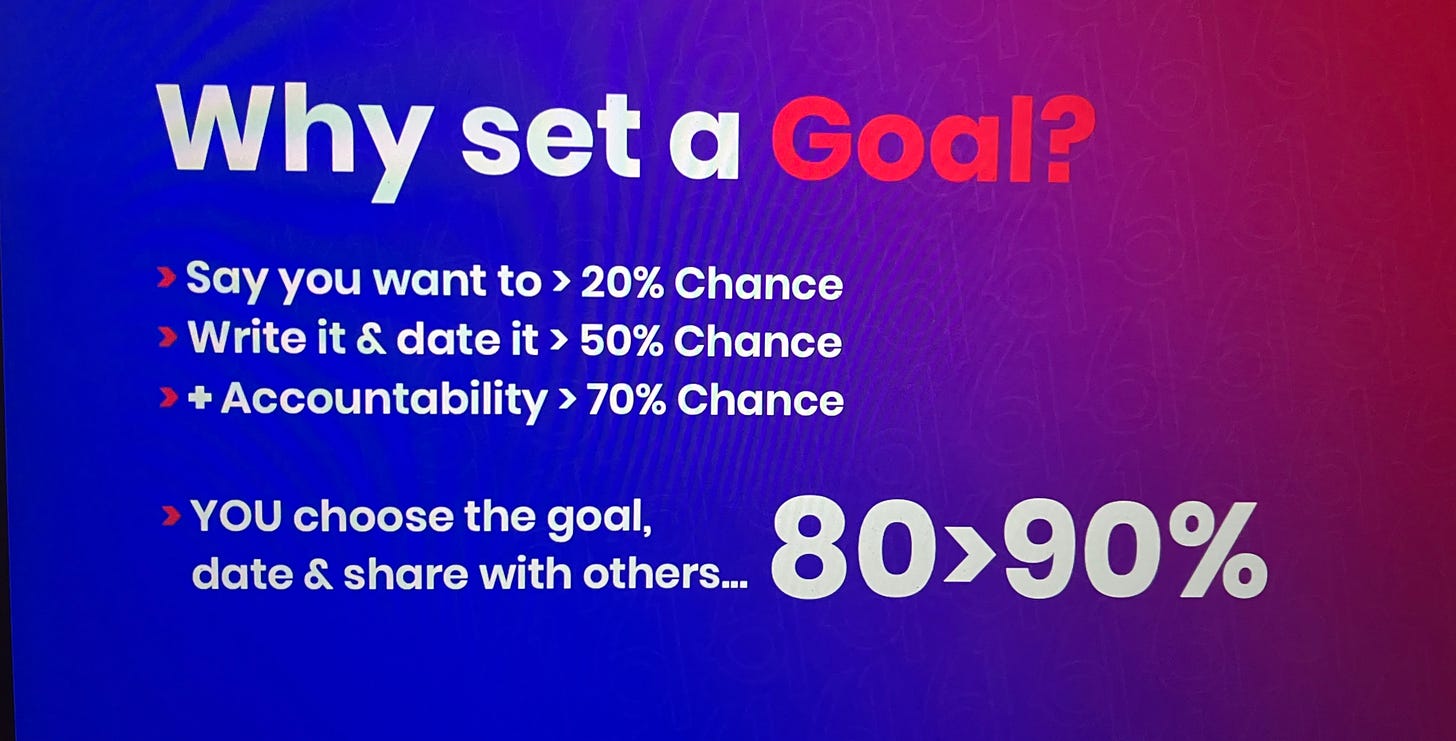
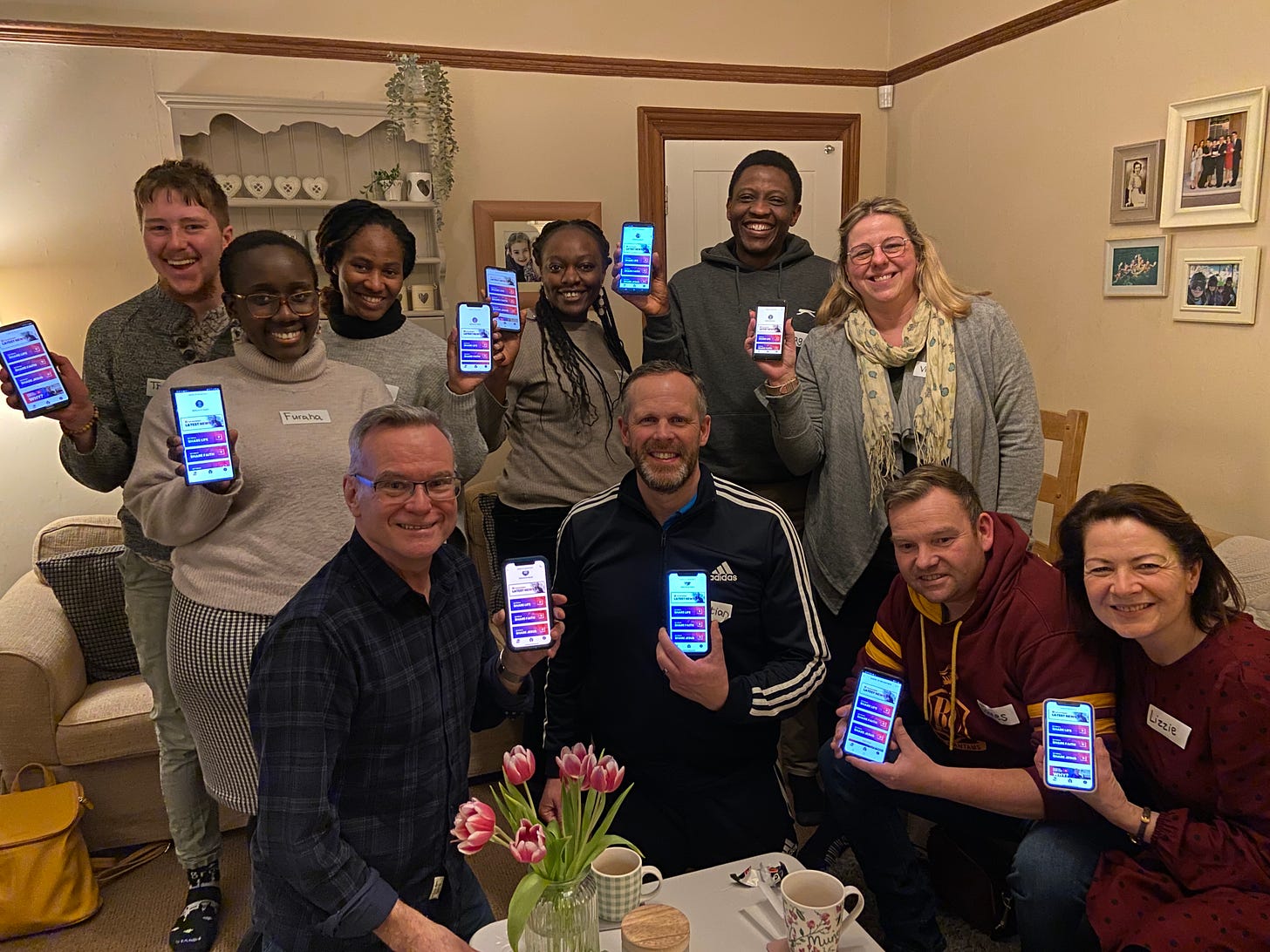
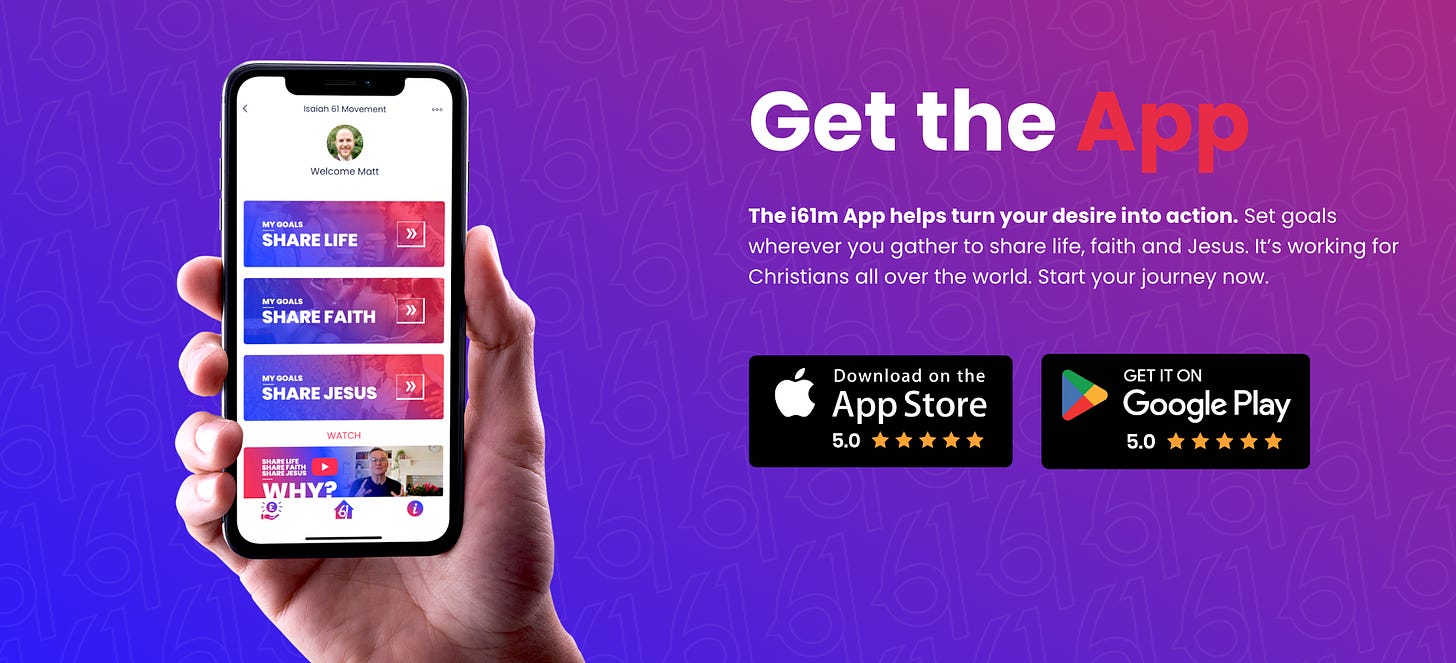
... each post is better than the previous one! Thanks Dave.
So good!!
An identity-based habit is based on the idea that “to change your behaviour for good, you need to start believing new things about yourself.”